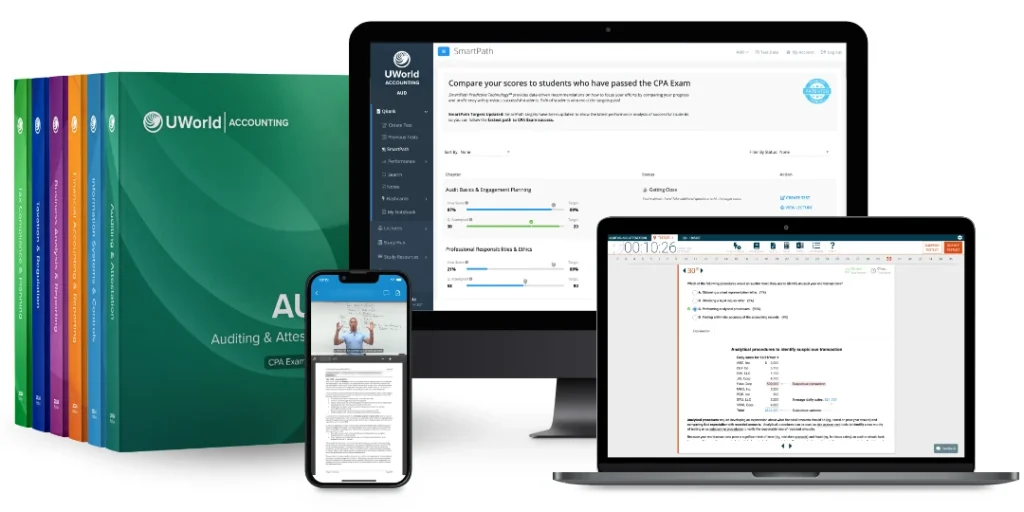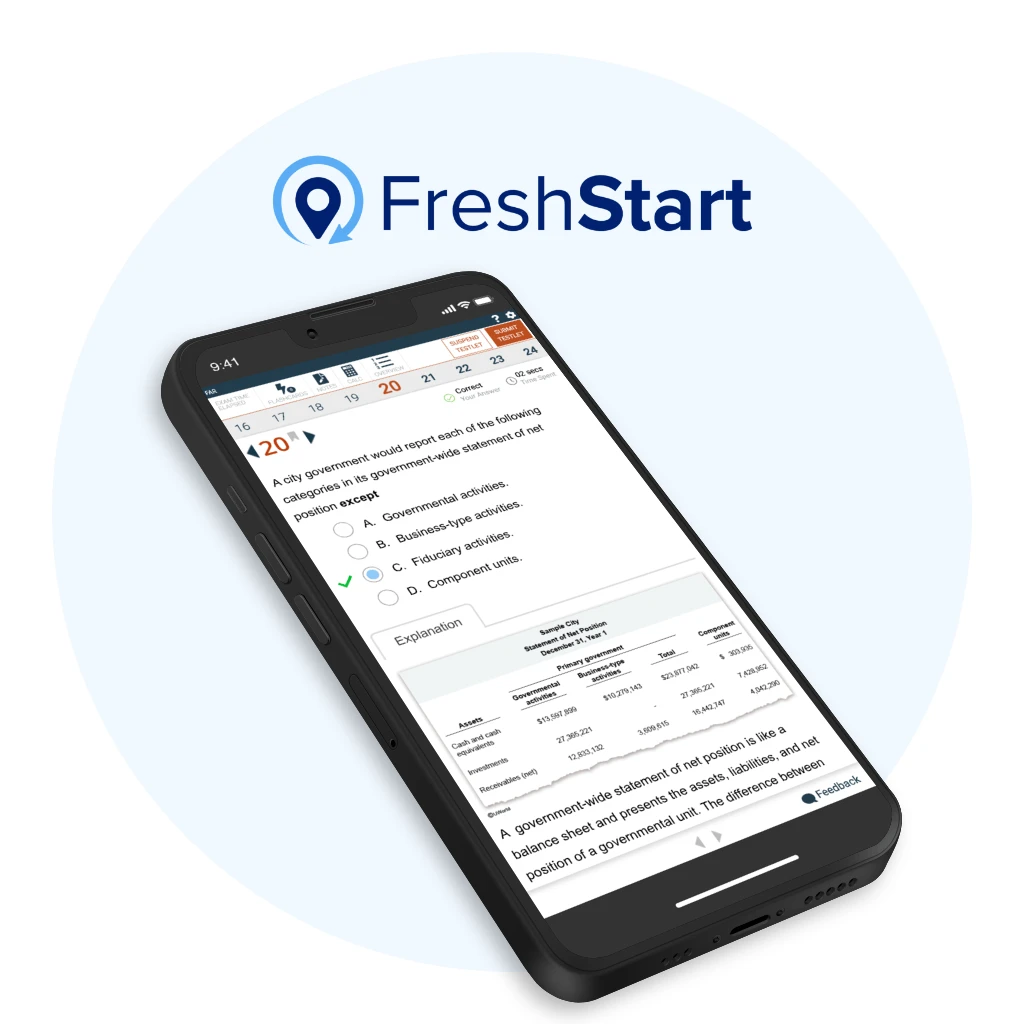UWorld: Your #1 Choice for CPA Review
Formerly Roger and Wiley CPA Review
UWorld CPA Review—built on the combined strengths of Roger CPA Review and Wiley CPA Review—offers the ultimate path to CPA Exam success. Learn from legendary instructors Roger Philipp (CPA, CGMA) and Peter Olinto (CPA Inactive, JD, CFA), tackle expertly crafted questions, and join over 4 million candidates who have passed with UWorld.
Why Choose UWorld CPA Review?
Helping over
prepare for high-stakes exams
Proven results with a
Rate
on the CPA Exam
Pass in
with SmartPath Technology™
Become a Partner for CPA & Accounting Education
We partner with hundreds of educational institutions, employers, and professional organizations to provide leading CPA review material and accounting resources.







Meet Our Lead Instructors
UWorld is home to an expert team of accounting educators and practicing CPAs, such as Roger Philipp, CPA, CGMA, and Peter Olinto, CFA, CPA (inactive), JD, who are committed to ensuring candidate success. We wondered why they chose to teach for UWorld, and here's what these two industry legends had to say.
Understand Difficult Accounting Concepts with Visual Learning
High-quality questions and detailed answer explanations – written by practicing CPAs and accounting educators – include vivid illustrations, diagrams, flowcharts, and tables that provide immediate feedback and bring tough CPA Exam topics to life.
CPA Study Tools for Every Student
Learn more about the innovative product features you can benefit from when you choose our trusted CPA review. Designed by CPAs for aspiring CPAs.
Study Smart and Pass Faster with Time-Saving Technology
UWorld is recognized as a leader in education technology. With innovative and adaptive tools that improve learning outcomes, we help you study difficult concepts efficiently, retain more information, and ultimately know when you are “exam ready.”
What Our Students Think About UWorld CPA Review
UWorld CPA Review is an amazing review course. The lectures are relevant and engaging. Watch the lectures, do the questions at least twice, and use flashcards. Stay strong, don’t give up, and you can pass!"
___Lauren W.
SmartPath is an absolute game changer. I had an 18-month (toddler) at home and my wife was expecting, and I passed all four parts in months while introducing the world to my second baby girl three days before one of my exams.”
___David R.
The QBank is well organized, very thorough, and prepared me for the CPA Exam. The question modules (and accompanying performance trackers) were the most valuable tools I had when preparing for the exam! I highly recommend UWorld!”
___Jennifer N.
Not Satisfied with Your Other CPA Review Course?
We’re here to help! If you’ve purchased another CPA review program and are not satisfied with your results, you may qualify for a FreshStart Discount.
Award-Winning Leader in Education Technology

19th Annual American
Business Awards®

Elijah Watts Sells Award
Student Winner

GSV Global EdTech
50 Member

EY Entrepreneur of the Year®
- Southwest
Frequently Asked Questions
What is a CPA review?
Is Wiley CPA part of UWorld CPA Review?
Can I pass the CPA Exam just by using UWorld CPA Review?
Is UWorld CPA Review regularly updated for CPA Exam changes?
How to use UWorld CPA Review?
- Log in to your UWorld course
- Download our CPA app for Apple and Android to study from anywhere
- Get started by viewing Roger CPA lectures or reading from your textbook
- Practice with our award-winning CPA question bank
- Remediate weaknesses through digital flashcards and My Notebook
- Track your progress with SmartPath Predictive Technology™


